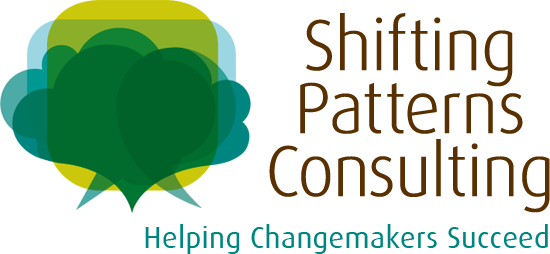The nation’s capital can be viewed as a microcosm for the drawbacks of capitalism where a high cost of living, gentrification, and socio-economic inequality combine to widen the gap between the “haves” and “have nots.” There are residents, civil society organizations, and local businesses in the Washington, DC area who refuse to accept this situation and are coming together to bring about a new economy—one that is more livable, equitable, and environmentally sustainable.
This blog post highlights the progress of this conversation, thus far, and explains how collaborative discussion and action planning is used as a tool to drive changing the economy to better serve all stakeholders. Read on for more details and to find out how you or your organization can play a role in this transformation.
Beginning with a bold vision
Drawing upon an eclectic background in affordable housing, community organizing, the green economy, and political advocacy, Steve Shaff is combining his broad skills and diverse networks to catalyze a movement for positive social and economic change. This movement stems from a belief that collaborative action offers the potential for getting beyond talking about the problems that are impeding the quality of life in the DC area to mobilizing the public, private, and plural sectors to collectively address them.
What began as periodic gatherings of local business leaders, social activists, and forward thinking public officials to discuss opportunities to bring about progressive policy changes is taking shape as an effort to transition to a new economy that serves the needs of everyone. The platform for the development of this movement is Community Vision Partners (C-VP), a social enterprise Steve Shaff founded, whose mission is to “initiate, facilitate and agitate for the common good.” C-VP’s flagship project is the Chesapeake Sustainable Business Council (CSBC), where Shaff also serves as the Founding Executive Director. CSBC is a business-led organizing and advocacy organization whose mission is to promote socially and environmentally sustainable business in the Chesapeake region.
Laying the groundwork for collaborative action
Recognizing the challenges of transitioning from talk to action, especially when it comes to mobilizing numerous organizations across various sectors with different interests and agendas as well as limited resources for collaboration, Shaff turned to Jeremy Grandstaff, Co-Founder of S&G Endeavors, and Kimberley Jutze, Founder of Shifting Patterns Consulting, for support. Following their initial meeting with Shaff, organization development consultants, Grandstaff and Jutze, agreed to facilitate a process for collaborative action that blends Whole Scale Change, Whole Systems Transformation, the DVF Model, and Appreciative Inquiry.
In September 2015 C-VP and CSBC hosted a strategic action meeting that was co-facilitated by Grandstaff and Jutze. About 30 people from the plural and private sectors with a shared interest in transitioning to a better economy for all attended this half-day session.
Key issues identified by the participants for further discussion were:
· Defining what a better economy for all means
· Mapping organizations and informal groups that are working on issues related to a shared economy, environmental sustainability, and economic justice
· Determining whether a separate organization or entity is needed to drive the transition to a shared sustainable economy
· Exploring opportunities for collaboration across sectors that involve taking effective collective action
· Ensuring that future discussions fully represent the diversity of the people and groups who will be impacted by the transition to the new economy
The primary outcome of this meeting was consensus for establishing a design team, which would be responsible for working closely with Grandstaff and Jutze to define what is meant by “a better economy for all” (encompassing social and environmental factors) and design a summit that is inclusive and diverse as a next step. Participants expressed interest in having a design team that is reflective of the diversity of the Washington, DC area. The design team, which will be comprised of volunteers, will be responsible for working on the issues identified above that will result in a framework for a summit. The summit aims to bring stakeholders together around an inspiring vision of a shared sustainable economy that works for everyone; create a community-supported concrete, actionable strategic plan to transition to a better economy for all; and establish a backbone organization that can support the implementation of this strategic plan.
Creating a future distinct from the past
As a next step, Shaff is reaching out to various stakeholders to assess their interest in joining a host committee that will jointly sponsor the summit and help identify members of the design team. Critical to developing a sustainable movement is ensuring that efforts are not duplicated. To this end, Shaff is also meeting with representatives of organizations that are contributing to the development of a sustainable economy in the Washington, DC area to identify opportunities for collaboration that can strengthen this movement and accelerate to the transition to a local economy that is socially, environmentally, and financially sustainable.
If this movement stays the course, relationships will be established among groups who don’t normally work together, resources for collective action will be shared, and voices to effectively challenge the status quo will be strengthened. Transitioning to a new economy for Washington, DC area residents requires additional resources, such as people who are willing to contribute their time as host committee and/or design team members as well as in-kind and financial contributions for hosting a summit and developing a backbone organization that can support collaborative efforts.
For more information or to get involved, contact Steve Shaff at steve@csbcouncil.org.
This post is co-authored by Jeremy Grandstaff, Co-Founder of S&G Endeavors, and was published by Collective Impact Forum on January 19, 2016.

